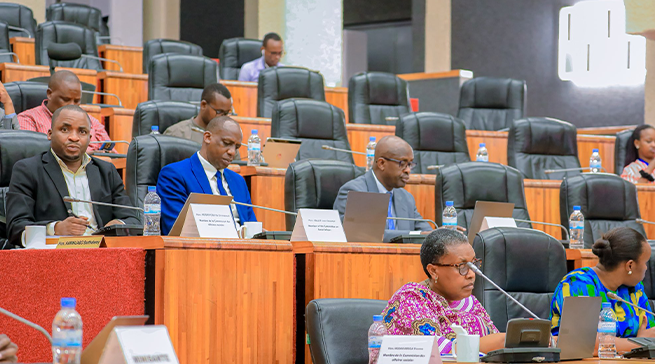The Parliament of Rwanda is currently engaged in a rigorous debate over a proposed Health Services Bill that includes provisions on surrogacy and sperm donation.
These clauses, considered progressive by some, have ignited widespread controversy over their ethical, cultural, and legal implications.
The draft legislation seeks to regulate assisted reproductive technologies, including allowing a woman to carry a pregnancy on behalf of another — commonly referred to as surrogacy.
It also permits sperm donation under specified conditions.
However, several Members of Parliament (MPs) have raised concerns regarding the identity and rights of children born through such arrangements.
A key point of contention is the right of a child to know their biological parentage.
Critics argue that permitting anonymous sperm donation or surrogacy arrangements could result in children growing up without access to vital information about their origins.
MP Mukarusagara Eliane proposed a compromise, suggesting that donors, while not necessarily identified physically, should be required to have their names registered.
“Even if the donor’s physical identity remains unknown, their name should be documented where the gametes are stored. This would facilitate civil registration and ensure the child can be legally recognised as belonging to a specific individual,” she said.
Civil society organisations partnering with the government in the health sector have also voiced concerns.
Bérnard of the Strive Foundation warned that children conceived through anonymous donation may experience long-term psychological effects.
“If a person can simply walk into a laboratory, donate sperm, and leave without any trace, the resulting child may later suffer from depression due to a lack of knowledge about their father,” he noted.
Uwimana Xavéline, a representative from Réseau des Femmes, highlighted the practical challenges associated with surrogacy.
“There are cases where surrogacy arrangements fail — either the surrogate does not conceive or the pregnancy ends prematurely. Such scenarios raise complex legal and emotional questions,” she said.
While some stakeholders see the proposed bill as a step forward for reproductive rights, particularly in allowing single women to conceive without a male partner, others have voiced strong cultural objections.
MP Mujawabega Yvonne described the practice of sperm purchase as inconsistent with Rwandan cultural norms.
“Children should ideally have known parents. Even as we explore scientific advancements and the role of donors, we must remain mindful of our cultural values and taboos,” she stated.
The draft legislation also addresses other sensitive issues, including the provision of reproductive health services to adolescents.
As is customary in Rwanda’s legislative process, the contents of the bill remain provisional and subject to amendment.
The final version will only take legal effect once approved by the plenary of the Chamber of Deputies and promulgated through the Official Gazette.
The ongoing debate reflects the broader challenge of balancing scientific progress with cultural preservation and legal clarity in matters affecting the nation’s social fabric.




















